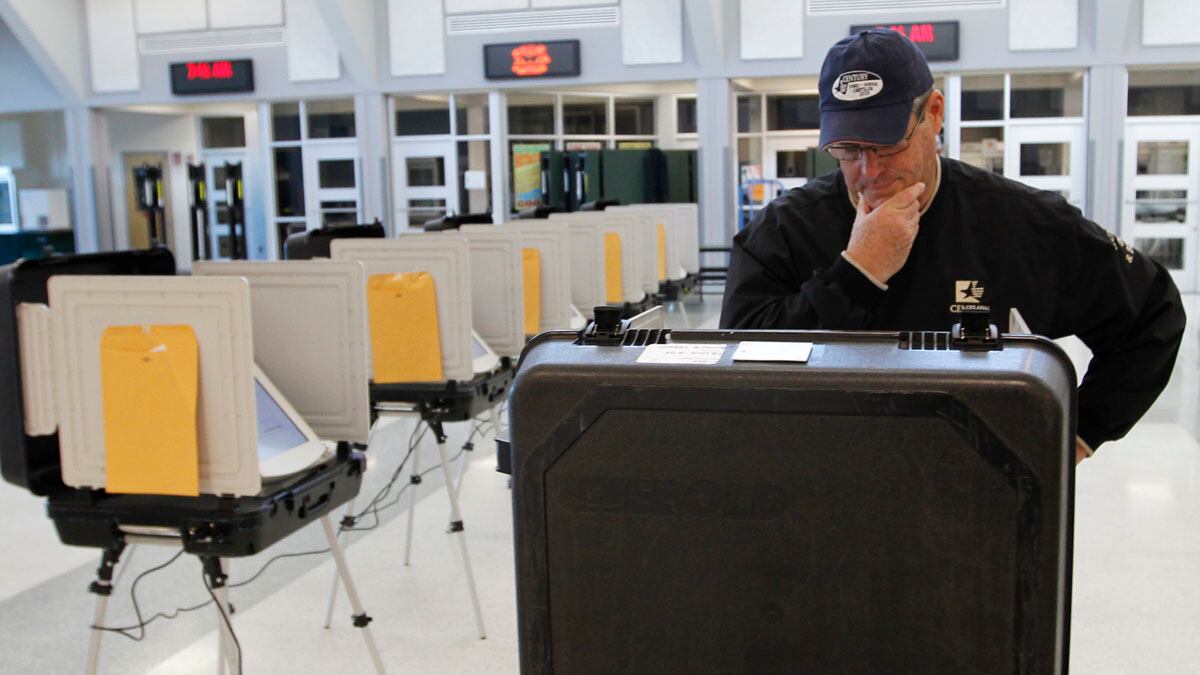Can you hear that roar just around the corner? It’s the rapidly approaching circus that is general election season. Now that the field is all but set, the few pollsters, pundits and “analysts” who haven’t yet come out of the woodwork to opine will make themselves known.
As with every election year, we have no shortage of political experts—the problem is, a lot of them are wrong a lot of the time. With the possible exception of sports, there is no area of American life besides politics where so many talking heads yield so little informed opinion. And the signal-to-noise ratio has only gotten worse in the age of ideologically-driven blogs and 24-hour cable news.
Luckily, viewers aren’t entirely lacking in tools that can be used to hack through the bloviation. Political psychologists, political scientists, and behavioral economists have made great strides in better understanding how we make decisions, how we change our minds, and how we evaluate different levels of risk—that is, in understanding how politics works.
So I contacted several of them with a simple question: What is the one insight from political science, psychology, or behavioral economics they most wished voters knew, the one that would most contribute to our ability to swim safely through the torrent of nonsense about to be unleashed? Their answers ranged over a wide array of research, and may serve as a useful starting point for anyone hoping to become a smarter campaign consumer.

Know Your BiasesJesse Graham, a USC professor of psychology who studies how people’s ideologies and senses of morality interact, said we could all do to become better acquainted with our own biases.
“I'd recommend Tom Gilovich's work on motivated information pursuit,” he wrote. “The takeaway is that when the information serves our side/team/preferred candidate we ask ‘Can I believe it?’ and look for reasons to do so. When it suits the other side we ask ‘Must I believe it?’ and look for reasons to dismiss the information.”
In other words, if you’re a liberal, you’re likely to accept “liberal” pieces of information far more quickly than “conservative” pieces of information, which you might refuse to believe on the flimsiest of grounds. Conservatives do the same in reverse. (Graham’s advisor at the University of Virginia, Jonathan Haidt, has a book out on this very subject.)
“If more people on either side caught themselves doing this, it might allow for more dialogue across political aisles (and slow down the increasing separation of conservative-friendly and liberal-friendly news sources),” he wrote. He recommended reading Gilovich’s book and papers.
Keep Things in Perspective
The sorts of biases Graham mentions often lead to misconceptions that twist and warp the political discourse. One example, as University of Virginia political science professor Vesla Weaver pointed out in her email, is the hubbub over welfare spending.
“[G]iven the recent financial crisis,” Weaver wrote, “we will invariably be talking a lot about ‘big government’ and spending and deficits. From there, we'll probably hear the raucous arguments about entitlement spending and the Tea Party will likely bring up the good old specter of the welfare queen and those ‘undeserving’ people getting aid.”
“These claims are wildly out of proportion to how much spending is actually on this anti-poverty program, especially compared to more ‘hidden’ or ‘submerged’ spending on the affluent. Take for example the Home Mortgage Interest Deduction, which the government loses $89 billion in revenue to each year. The HMID is basically an upwardly redistributive program for the middle and affluent but very few ordinary American voters know how much we spend on it versus welfare, which gets much more attention.”
To better understand this divide, Weaver recommended Cornell political scientist Suzanne Mettler’s book The Submerged State: How Invisible Government Policies Undermine American Democracy. (I’ve also written a bit about Mettler’s work here and here.)
Emotion is Not the Enemy
At various points during the campaign, it stands to reason, both Obama and Romney (and the PACs supporting them) will be accused of releasing emotionally manipulative ads. Not so fast, says Deborah Schildkraut, a professor of political science at Tufts University: “There is a lot of research lately showing that emotions are not inherently problematic for electoral politics,” she wrote. “Negative ads, for instance, can make people angry, and anger can be energizing and lead to involvement. They might also provoke anxiety, which has been shown to lead people to ‘stop, look, and listen,’ and to get dislodged from their automatic partisan habits. So I would say that it would do voters well to realize that efforts to elicit their emotions are not inherently harmful to the political process.”
They’re also not a reason to get disillusioned and withdraw from that process altogether. Schildkraut noted that “research across the American political landscape consistently confirms that squeaky wheels get grease. Sitting out [the election] only reduces the ability of whatever social or demographic group [to which] one belongs to be heard and to have its interests addressed. While the role of money in electoral politics is huge, people should not assume it means that individuals don’t matter.”
Go Beneath The Surface … If You Can
Paul Frymer, a political scientist at Princeton, was less upbeat about the ability of individuals to make a meaningful difference in our political system.
“Anthony Downs said a long time ago in An Economic Theory of Democracy that rational politicians (meaning strategically trying to get elected) behave in ways that make it impossible for voters to be rational because they will purposely blur, hide, disguise their positions to be as ambiguous as possible,” he wrote. “He may well have been talking about Obama and Romney.”
But despite the artifice that comes with all campaigns, Jerrold M. Post, a professor of psychiatry and political psychology at George Washington University, emphasized the importance of understanding leaders’ personalities. “The issue for me is discovering the man (or woman) behind the political mask,” he wrote. “It is all too easy to be enthralled by the surface without understanding what lies beneath. Particularly important is understanding the formative influences that shaped the individual’s political personality.” He and other researchers work on just this issue—developing methods to help us gain a better sense of exactly who our leaders are.
Don’t Believe Everything You Read
David Greenberg, a media studies and history professor at Rutgers University, sounded a note of caution about political science findings in general. “I think political scientism has gone too far,” he wrote. “Some of these findings are useful but most are disputed—i.e., on most political science claims that are not blindingly obvious, there is not a consensus.” He recommended a recent New York Times article on the question of whether political science findings can be understood in the same data-driven way as findings in the hard sciences—or whether political scientists should even have this as a goal.
In a follow-up email, Greenberg elaborated on his skepticism. “Non-academics, including journalists, tend to assume that academic findings—whether by scientists, social scientists, historians or anyone—are like cold facts. But usually they’re theories, often the subject of controversy or dispute.” Here Greenberg brought in an ongoing controversy: “A lot of political scientists will tell you, for example, that the campaign practices or personality of the candidates doesn’t matter, that the president election is always determined by economics. But there are also many scholars who disagree with this sort of economic determinism.”
The takeaway? Stay abreast of the political-science research when you can, but remember that some of it may be worthless. No wonder the pundits find it so easy to take advantage of us.






